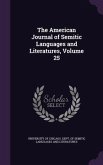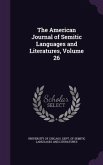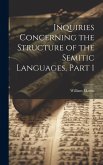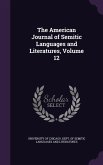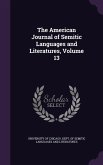On Semitic Words In Greek And Latin by William Muss-Arnolt delves into the fascinating intersection of language and history, tracing the origins and evolution of Semitic loanwords in classical Greek and Latin. This meticulously researched study provides a valuable resource for linguists, classicists, and anyone interested in the historical connections between seemingly disparate languages. Muss-Arnolt's work offers detailed analyses of specific words, exploring their etymological roots and the processes by which they were adopted and adapted into the Greek and Latin vocabularies. By illuminating these linguistic pathways, the book sheds light on the cultural and historical interactions between the Semitic-speaking world and the classical civilizations of Greece and Rome. This book remains a significant contribution to the field, offering insights that are still relevant to contemporary linguistic research. This work has been selected by scholars as being culturally important, and is part of the knowledge base of civilization as we know it. This work was reproduced from the original artifact, and remains as true to the original work as possible. Therefore, you will see the original copyright references, library stamps (as most of these works have been housed in our most important libraries around the world), and other notations in the work. This work is in the public domain in the United States of America, and possibly other nations. Within the United States, you may freely copy and distribute this work, as no entity (individual or corporate) has a copyright on the body of the work. As a reproduction of a historical artifact, this work may contain missing or blurred pages, poor pictures, errant marks, etc. Scholars believe, and we concur, that this work is important enough to be preserved, reproduced, and made generally available to the public. We appreciate your support of the preservation process, and thank you for being an important part of keeping this knowledge alive and relevant.
Bitte wählen Sie Ihr Anliegen aus.
Rechnungen
Retourenschein anfordern
Bestellstatus
Storno



